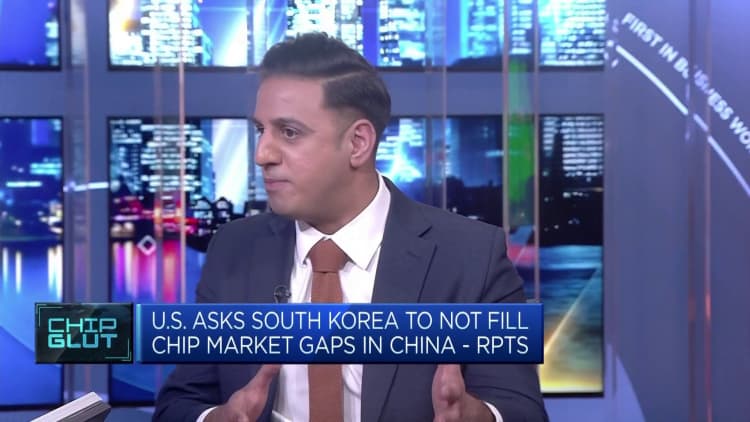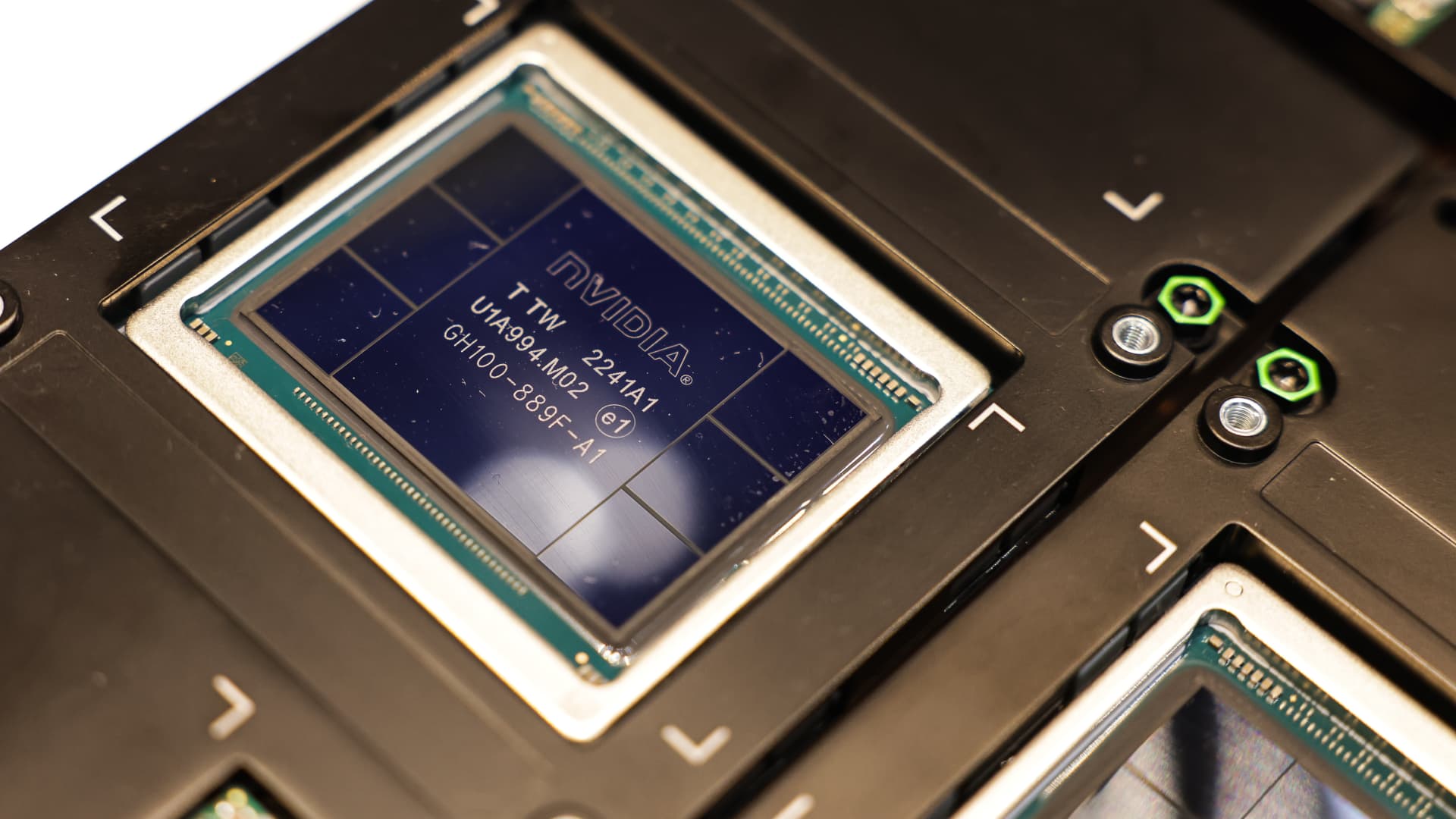A Nvidia Corp. HGX H100 artificial intelligence supercomputing graphics processing unit (GPU) at the showroom of the company’s offices in Taipei, Taiwan, on Friday, June 2, 2023.
I-Hwa Cheng | Bloomberg | Getty Images
China’s artificial intelligence stocks fell Wednesday after the Wall Street Journal reported that the U.S. is planning to impose new curbs on shipments of AI chips to China.
According to the Journal, U.S. chip makers such as Nvidia will be affected by the move which could happen as early as July.
Nvidia produces graphics chips responsible for driving the technology behind OpenAI’s ChatGPT and Alphabet’s Bard chatbots.
China’s CSI artificial intelligence index fell 3% on that news on Wednesday in Asia. The Shenzhen-traded shares of Inspur Electronic Information Industry slumped 10% and Chengdu Information Technology of Chinese Academy of Sciences dropped nearly 8%. These firms primarily produce computers and software.
Other Chinese AI plays also fell. Hong Kong-listed shares of Alibaba — which launched its own version of the viral chatbot ChatGPT — dropped about 1.6%, and Tencent, which is building its own AI model, declined 1.58%.
Citing sources familiar with the matter, the WSJ said the U.S. has growing concerns about China’s ability to make technological advancements with AI.
According to the report, the U.S. Commerce Department could “stop the shipments of chips made by Nvidia and other chip makers to customers in China and other countries of concern without first obtaining a license.”
The Commerce Department did not immediately respond to CNBC’s request for comments outside regular business hours.
Such a move will expand Washington’s efforts to block China from advanced chip technology.
The U.S. implemented rules to cut China off from advanced chip equipment in October.
In May, Beijing banned Chinese operators of critical information infrastructure from buying products from Micron Technology, saying the U.S. memory chipmaker poses a “major security risk.”
Washington also reportedly urged South Korea not to allow its domestic chip makers fill Micron’s void in China.



